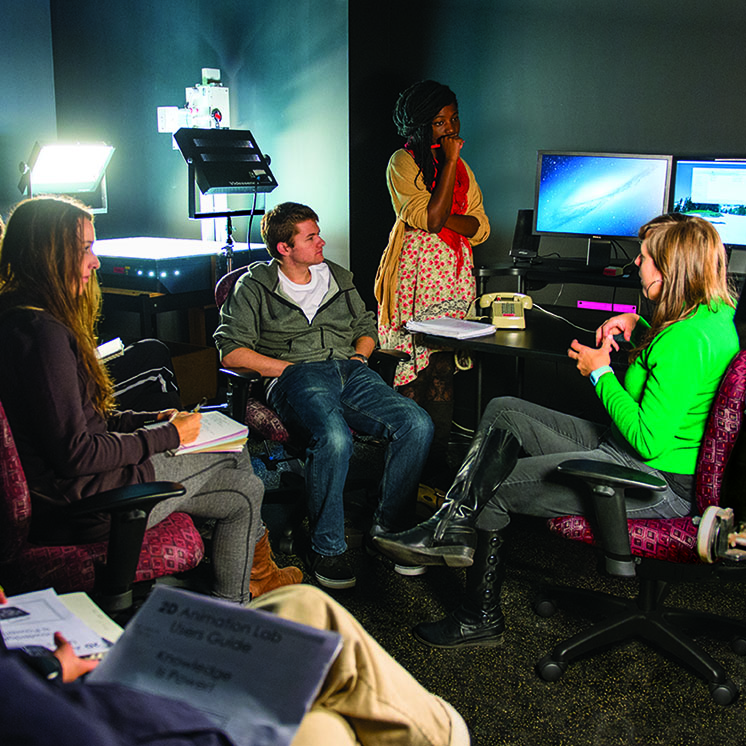Mediaworks: Signifying Power and Difference on Screen(s)
REVISED
Fall 2015, Winter 2016 and Spring 2016 quarters
Taught by


Prerequisites
What does it mean to make moving images in an age of omnipresent media, information overload, social inequality, and global capitalism? What's the relationship between aesthetic form and power across race, class, gender, and other axes of difference? How can we understand the interplay between popular media and experimental modes? How do we critically engage with the history and traditions of media practices while testing the boundaries of established forms? What responsibilities do media artists and producers have to their subjects and audiences? How can media makers represent or transform the “real” world? Students will engage with these questions as they gain skills in film/video/television history and theory, critical analysis, media production, collaboration, and critique.
This full-time, yearlong program links media theory with practice. We will explore a variety of media modes and communication strategies, primarily interrogating representations of the "real” in media texts spanning the continuum between popular entertainment and artistic practice. As creative critics, we will gain fluency in methodologies including: close reading and formal analysis; mapping narrative and genre; unpacking power from feminist, critical race, decolonial, and anti-capitalist perspectives; and cultural, historical, and technological framing of commercial and independent media production. These analytical skills will help us understand strategies that artists have employed to challenge, mobilize, and re-appropriate mainstream media forms. As critical creators, we'll learn foundational production skills and experiment with alternative approaches, including nonfiction, video art, writing for and about media, autobiography, essay films, remix, installations, and performance. In addition to production assignments, program activities will encompass analysis and criticism through screenings, readings, seminars, research, and critical writing. We'll also spend significant time in critique sessions discussing our creative and critical work.
In fall, students will explore ways of seeing, listening, and observing in various formats, focusing intensively on 16mm film production and completing both skill-building exercises and short projects. These collaborative exercises and projects will have thematic and technical guidelines consistent with the program curriculum. Our production work will be grounded in the study of concepts and methodologies from media history and theory, including significant critical reading, research, and writing. In hands-on workshops and assignments, we'll analyze images as communication and commodities and investigate how images create and contest meaning in art, politics, and consumer culture.
In winter, students will delve deeply into field- and studio-based video/audio production and digital editing, using the CCAM studio and HD video technologies. We'll do this learning in conjunction with studying the social and technological history of television and video. Our production work will be primarily collaborative, though students will conclude the quarter by working on an independent project proposal.
In spring, as a culmination of the conceptual, collaboration, and production skills developed in fall and winter, each student will create an independent project. Possible forms include video or film, installation, web-based projects, research projects, and internships. Technical workshops, screenings, research presentations, and critique discussions will support this emerging work.
Program Details
Fields of Study
Preparatory for studies or careers in
Academic Website
Location and Schedule
Campus location
Olympia
Schedule
Offered during: Day and Evening
Advertised schedule: First spring class meeting : Tuesday, March 29 at 10pm (Com 408)
Books
Online Learning
Required Fees
Special Expenses
Internship Possibilities
May be offered again in
Revisions
| Date | Revision |
|---|---|
| December 9th, 2015 | First winter class meeting location updated: Sem II D1105. |
| November 18th, 2015 | This program will not accept new enrollment winter quarter. |
 my.evergreen.edu
my.evergreen.edu

 Fall
Fall  Winter
Winter  Spring
Spring